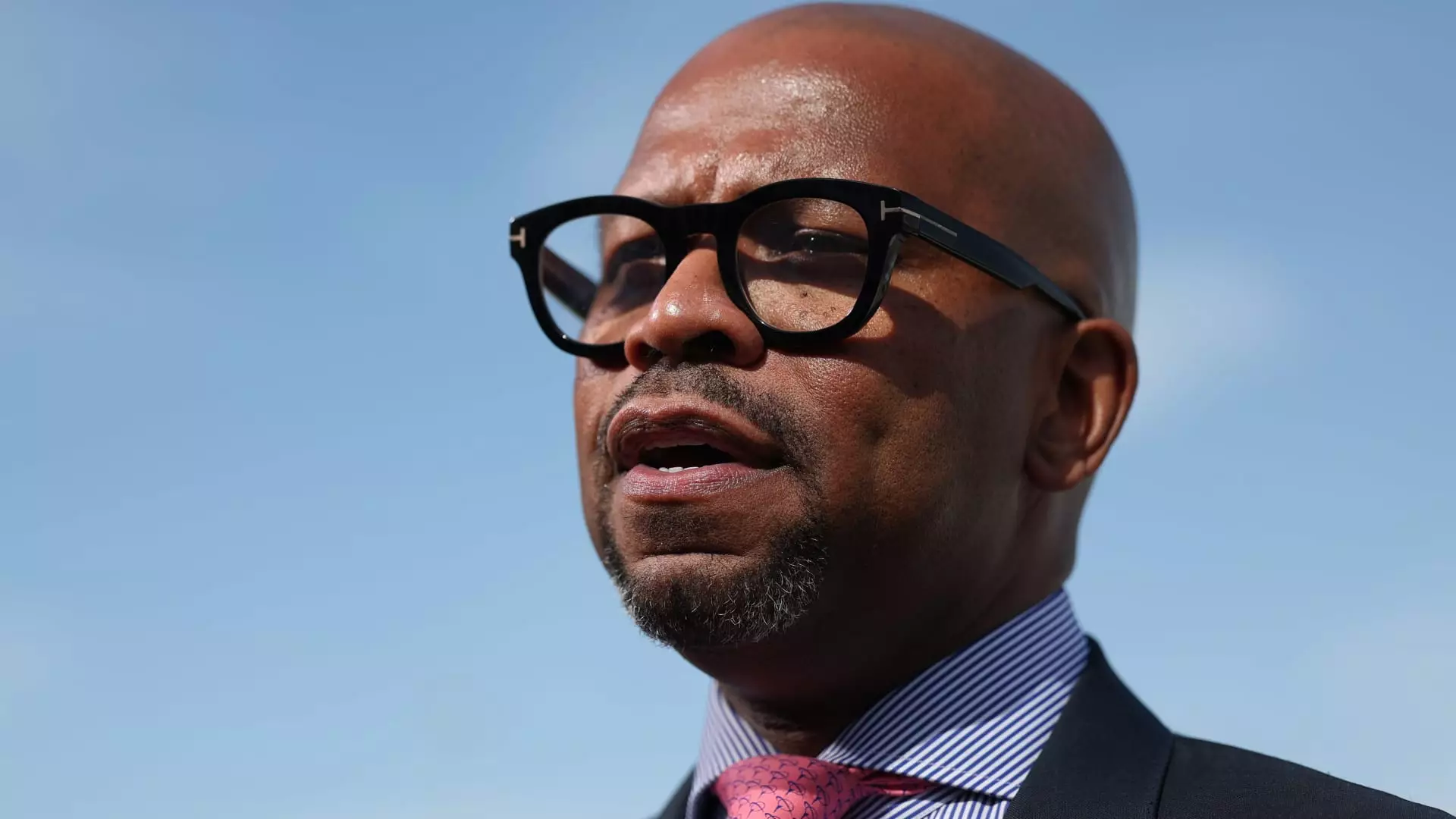In a significant move for Boeing, CEO Kelly Ortberg has announced the immediate departure of Ted Colbert, the head of the defense division. This decision marks Ortberg’s first substantial executive action since he assumed leadership in August. The sudden exit underscores the pressures facing Boeing, particularly in its defense, space, and security sectors, which have been grappling with various operational challenges. Ortberg’s memo to staff detailed the imperative for the organization to regain customer trust and meet the expectations of their global missions, signaling a renewed focus on accountability and performance within the company.
Boeing’s defense unit has been a crucial component of its overall business, accounting for a staggering 40% of the company’s revenue in just the first half of the year. However, the division has recently faced several hurdles, including persistent production delays and budget overruns. These issues have been particularly impactful in the production of new 747 aircraft designated as Air Force One, a program that emphasizes not just financial viability, but also national security. The implications of these setbacks extend beyond the confines of corporate finances; they threaten to undermine Boeing’s reputation and its long-standing relationship with government contracts.
In light of Colbert’s departure, Chief Operating Officer Steve Parker is stepping in as interim leadership for the defense unit. This transition serves as an opportunity for reevaluation and necessary restructuring. Parker, with his extensive experience, will need to quickly maneuver the team towards reestablishing smooth operational processes and improving program timelines. Ortberg’s acknowledgment of Colbert’s 15 years of service highlights the complexity of succession in a leadership role amidst trying circumstances, suggesting a deeper need for resilience and adaptability within Boeing’s corporate culture.
Boeing’s challenges are not limited to the defense sector alone; issues also persist in its space endeavors, particularly with the Starliner spacecraft. Recent reports confirmed that the Starliner would return without its intended astronauts following a mission to the International Space Station, a disappointment compared to the timelines set by SpaceX and other industry players. The fact that NASA opted for SpaceX’s Crew-9 vehicle for the return trip accentuates the competitive landscape in commercial spaceflight, further complicating Boeing’s position in the industry. This highlights an urgent need for Boeing to innovate and regain its competitive edge in a rapidly evolving market.
With leadership changes, production issues, and a competitive space environment, Boeing’s defense unit finds itself at a crossroads. The company must not only focus on improving their operational efficiencies but also on restoring confidence that their projects can meet expectations reliably. As Ortberg’s memo emphasizes cooperation and commitment, the collective efforts of the team will be critical in navigating through this turbulent period. Moving forward, it will be imperative for Boeing to correct its course while safeguarding the trust placed in them by their customers and stakeholders alike.


Leave a Reply